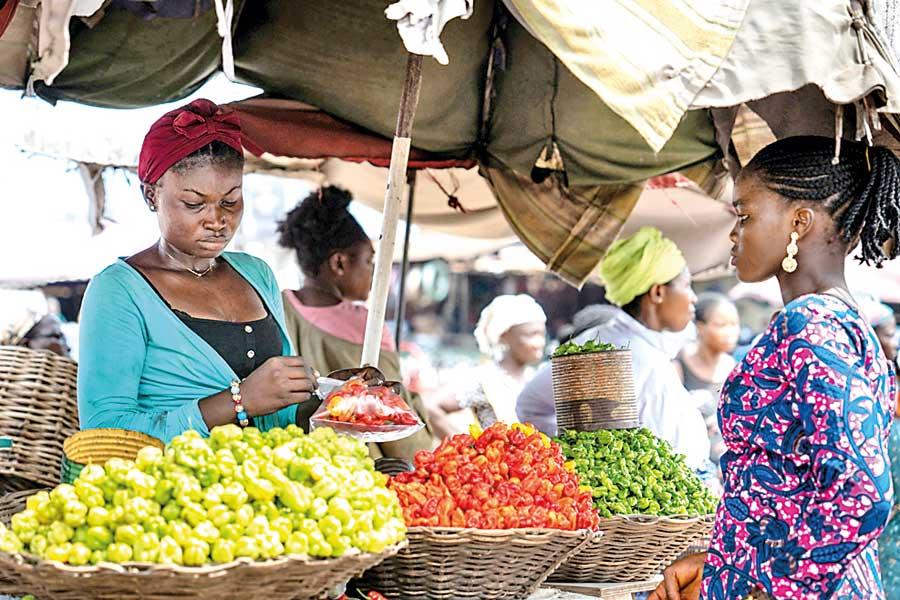Reply To:
Name - Reply Comment
Last Updated : 2024-04-27 13:21:00

In the last two decades since Arrighi wrote his seminal article, Sri Lanka and many African countries have been on the same path of commercial borrowing. The process has resulted in the extraction of more wealth and further exacerbated balance of payment problems, even as the elite in these countries sprawl in luxurious consumption.
Crisis and despair push us to learn rapidly and that is true of debt crisis as well. But whom do we learn from and whom do we work with to find solutions to the crisis?
whom do we work with to find solutions to the crisis?
The IMF team in all their pomp are again visiting Sri Lanka. Their tutelage continues to be the same for us as many other countries in debt distress—austerity, repaying creditors and promoting free markets.
Our leaders and our elite, with their subservient policies and self-serving interests, are lining up to meet the IMF for lessons on how to rebuild our economy. Indeed, that is what we have been doing for over four and a half decades since the open economy reforms. But this time even more than in the past, we are in the chokehold of the IMF, having defaulted on our external debt.
Learning from others
So why do we not look at other countries that have gone through similar debt crises and learn from them? Indeed, in our colonised minds we only look to the West for solutions. And for long, we thought we were better than the African countries that had gone through previous cycles of debt crisis. But during the current wave of global debt crisis, as the first country in Asia to default on external debt, Sri Lanka may not only have to learn from its fellow defaulters in Africa but also work with them to find a way out of the crisis.
Long crisis
As I struggle to understand the connections, sitting in my new study, where only a few weeks ago my mother passed away, I am reminded of my childhood in the very same room. During the long afternoons of weekends and school holidays, my mother, an English teacher and avid reader of novels, used to read book after book to my older brother and I. Both of us, as boys, were weak in our languages, and this was part of my mother’s commitment to educate us, through Tamil classics and English novels. Among those many novels she read to us was Alex Haley’s Roots. That story, beginning with the slave trade and slavery, left indelible childhood thoughts about colonial oppression and suffering in Africa. In later years, it pushed me to read about the anti-colonial African leaders including Nasser, Nkrumah, Nyerere and Lumumba.
Why did those powerful visions for decolonisation and development fail in Africa? And what led to the repeated economic crises, including debt distress, in so many African countries? As I study the debt crisis in Sri Lanka, I am attempting to learn from history of African countries that have recently defaulted on their external debt such as Ghana, Zambia and Ethiopia. In this context, I went back and read a seminal article by one of the most profound political economists of our times, Giovanni Arrighi. Reflecting on his early career and research in Africa, Arrighi’s article in the New Left Review titled “The African Crisis,” published in 2002, provides some clues as to why over the forty years after decolonisation in the 1960s, Africa continued to fall behind East Asia and even South Asia in economic development.
economic crises, including debt distress, in so many African countries? As I study the debt crisis in Sri Lanka, I am attempting to learn from history of African countries that have recently defaulted on their external debt such as Ghana, Zambia and Ethiopia. In this context, I went back and read a seminal article by one of the most profound political economists of our times, Giovanni Arrighi. Reflecting on his early career and research in Africa, Arrighi’s article in the New Left Review titled “The African Crisis,” published in 2002, provides some clues as to why over the forty years after decolonisation in the 1960s, Africa continued to fall behind East Asia and even South Asia in economic development.
Arrighi’s article two decades back analysed the long descent of the African countries into debt crises in the 1980s. The article has gained some interest in recent times, as many political economists see parallels between the current wave of debt crises and the previous wave starting in the 1980s. Arrighi, drawing on former World Bank economist William Easterly, critiques the World Bank and mainstream economists who “claim that the ‘bad’ policies and ‘poor’ governance of African elites were the primary causes of the African crisis.”
Lagos Plan
Arrighi in reflecting on the descent of African economies refers to a seminal declaration by the Organisation of African Unity (OAU). ‘The Lagos Plan of Action for the Economic Development of Africa 1980–2000’ was signed by African countries that in many ways saw the crisis coming. In fact, in that document, they gave considerable importance to self-reliance and self-sufficiency in food and agriculture, as they sought to correct the course of development in the two decades after decolonisation. However, the Lagos Plan according to Arrighi came too late. The historical structural factors – including the slave trade that had undermined labour over centuries along with the elimination of leadership for local enterprises under colonialism – had irrevocably undermined African development. Furthermore, the conjuncture of the 1980s with the tremendous rise in global interest rates and the push for free markets by the West, set Africa on the path of a prolonged crisis.
In our times
Much of this history should be familiar to us in Sri Lanka, where we are given lectures on the “good policies” of the IMF and the need for “good governance” in our country, without reference to an unequal and exploitative global system. Furthermore, we have yet to understand our postcolonial limitations; a blind spot reflected in the fact that we somehow think we can imitate the West and catch up. Today, we are again facing a conjuncture like that of the 1980s, with debt distress in the Global South, rising global interest rates led by the Federal Reserve of the US, and unravelling of the global order.
In the last two decades since Arrighi wrote his seminal article, Sri Lanka and many African countries have been on the same path of commercial borrowing. The process has resulted in the extraction of more wealth and further exacerbated balance of payment problems, even as the elite in these countries sprawl in luxurious consumption. If we take a country like Ghana, a peer in terms of the size of GDP but with a population that is fifty percent larger than Sri Lanka, it also went into its 17th agreement with the IMF last year for USD 3 billion over three years, which is a mere fraction of its external debt stock. Indeed, there are other remarkable parallels with Sri Lanka, as Ghana went through IMF agreements in 2009 and 2015, while Sri Lanka did so in 2009 and 2016. The IMF agreements were the green lights to aggressively float International Sovereign Bonds in the international capital markets, which primed both countries to eventually default on their external debt.
As the creditors and investors hover over Sri Lanka to suck up our remaining resources in our most vulnerable moment, should we not begin to think about solidarity with countries in Africa? Is it possible to conceive a collective of debtor nations to find ways out of a neo-colonial system that has exploited us by reinforcing our dependency? Any renewed resistance should also draw inspiration from past initiatives like the Lagos Plan. As we are confronting a disastrous international financial system and a food crisis that is devastating our peoples, we must work towards self-reliance in development financing in the Global South and self-sufficiency in food in our countries.
FredSnR Tuesday, 19 March 2024 12:21 PM
Why are we comparing ourselves to Africa a mostly backward continent maybe there are parallels in borrowing better to look at countries that have been successful and try to emulate them.People here are so far ahead of African countries which for the most part rely on foreign aid and expatriates from other countries including SL. It is the intrigue here that is so hard to get past, a country run by politicians for politicians. and corruption If you can get past that and allow the talent to take over(I mean the youth) a lot can change.The IMF has its own agenda it is controlled by the big powers SL has to listen to them if they have borrowed but find its own solution( aim for self reliance) no other way alternative will be life long servitude(vassal state)This election will be a crucial one
FOOD FOR THOUGHT Wednesday, 20 March 2024 12:15 AM
CONGRATULATIONS WELL WRITTEN ARTICLE.

Add comment
Comments will be edited (grammar, spelling and slang) and authorized at the discretion of Daily Mirror online. The website also has the right not to publish selected comments.
Reply To:
Name - Reply Comment
US authorities are currently reviewing the manifest of every cargo aboard MV
On March 26, a couple arriving from Thailand was arrested with 88 live animal
According to villagers from Naula-Moragolla out of 105 families 80 can afford
Is the situation in Sri Lanka so grim that locals harbour hope that they coul

26 Apr 2024
26 Apr 2024